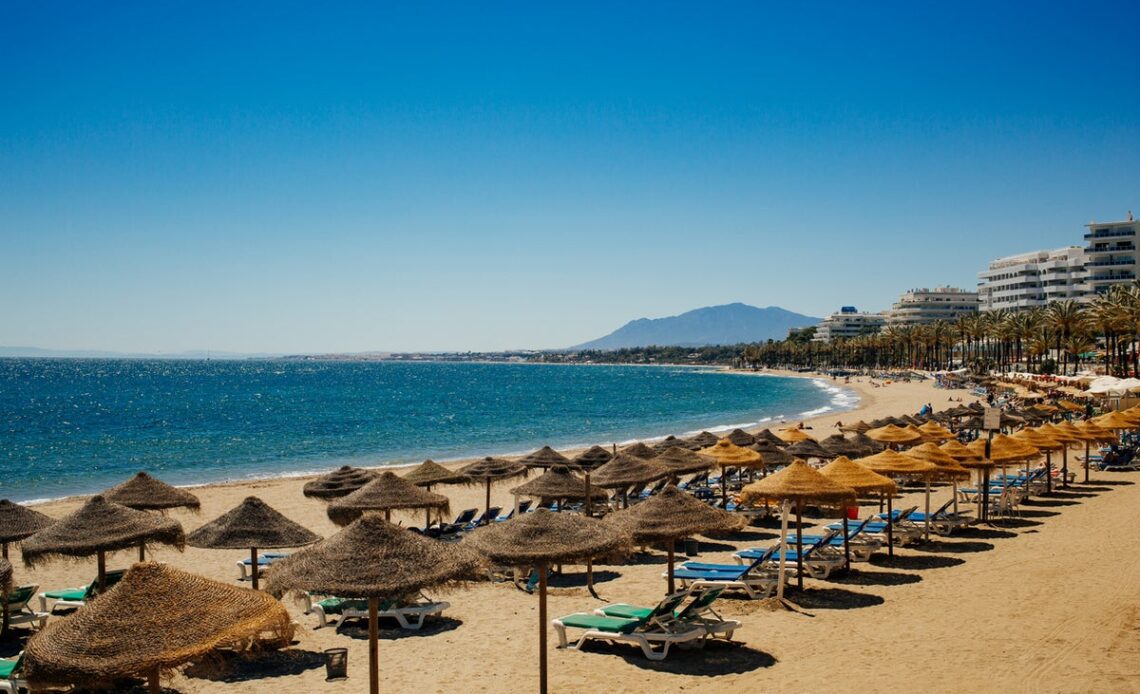Plans to make air travel more climate-friendly will make holidays to Spain more expensive, according to a new report.
The European Commission has laid out plans to cut greenhouse gas emissions in its ‘Fit for 55’ plan for the tourism industry, prompting consultancy firm Deloitte to analyse the cost for the economy and tourism, the Mirror reports.
Following its research, Deloitte has stated that the carbon cutting measures will likely have grave consequences for tourism in Spain, which is the second most visited country in the world, recording 83.7 million tourists per annum.
The report predicts that, under the new measures, Spain will lose out on 11 million tourists each year.
Others have raised concern about the impact on local communities, predicting losses of £10.5bn in local spending and seeing 430,000 jobs at risk.
One of the new measures, named the ‘ticket tax’, will see an extra £6.85 added onto all plane tickets to Spain. It will also require airlines to use 5 per cent more expensive sustainable aviation fuel.
This could mean more expensive flights for holidaymakers, and there is likely to be extra costs once visitors arrive there too.
The news follows recent stats from Eurochange that suggest a week’s holiday in the European country is now £500 more expensive than this time last year.
It echoes statements by Ryanair boss Michael O’Leary on the state of foreign tourism, in which he predicted Ryanair’s own average flight prices would rise from £33.75 to £44.37 over the next five years.
He said €10 flights will not be seen for a “number of years”, as airlines struggle with rising fuel prices.
The EU’s ‘Fit for 55’ plan has been introduced to tackle the immediate risk of climate change – Spain alone saw some of the hottest temperatures it had ever seen this summer.
This summer also saw a number of droughts, and experts predict that extreme weather is only going to increase over the next few years, potentially making popular holiday destinations too hot to visit.
President of Spain’s Association of Airlines Javier Gándara said: “The EU has chosen the wrong path when it comes to emission reduction. In the aviation sector we are committed to achieving net zero emissions by 2050.
“We share the goal with the EU and with our government, but we believe that there are other solutions on the way to achieve that goal that are more effective and favourable for the economy and employment.”
Click Here to Read the Full Original Article at The Independent Travel…
